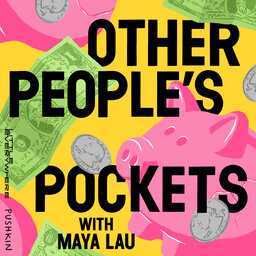Ben Shewry, chef of Attica restaurant in Australia
Ben Shewry has one of the top restaurants in the world, but even he needs to supplement his income. Ben is the New Zealand-born chef and owner of Attica, in Melbourne, Australia, a highly-acclaimed yet anti-"fine dining" establishment. He talks about his paycheck, his skater punk youth, and the definition of "selling out."
Follow Ben Shewry:
Instagram: @benshewry
Attica: https://www.attica.com.au/
Follow Maya Lau at:
Twitter: @mayalau
Instagram: @itsmayamoney
TikTok: @itsmayamoney
 Other People's Pockets
Other People's Pockets


